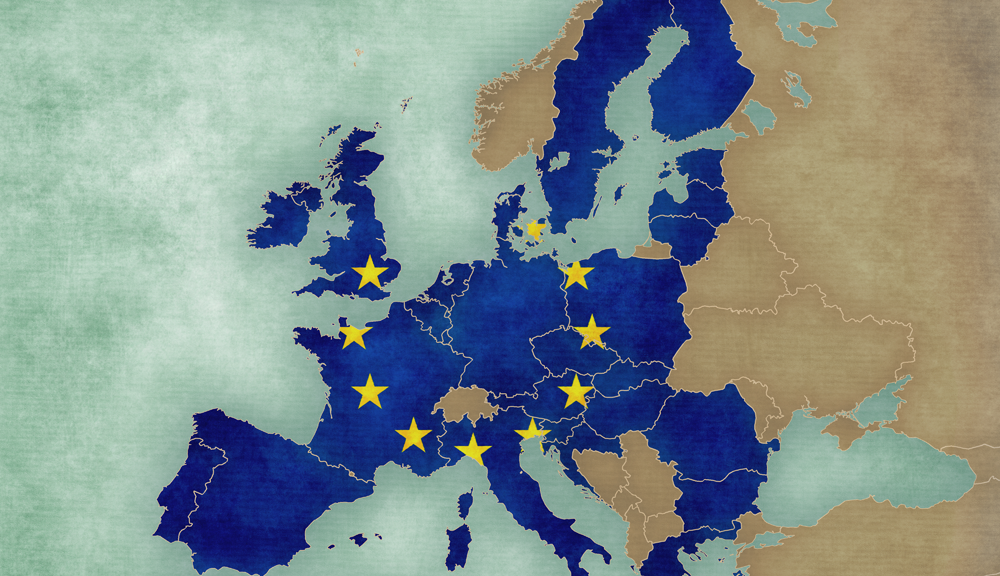MarketsMuse.com update courtesy of extract from Jan 6 ETF.com article by Dennis Hudacheck, with a look at Eurobond ETFs $HEDJ,$DBEU, $HEZU, $EZU, $DBEZ, $VGK, $FEZ, $DFE
All eyes are on the European Central Bank’s Jan. 22, 2015 meeting, as it’s no secret that ECB President Mario Draghi has been hinting at a large-scale quantitative easing program for some time.
There’s no guarantee the ECB will actually implement any such program in January, but the consensus seems to be that there will be some type of big announcement on that front sometime in the first quarter of 2015.
At the same time, the U.S. Federal Reserve is expected to begin raising rates in mid-2015. This opposing force between the world’s two largest central banks has strategists calling for a currency-hedged strategy to capitalize on a rising-equity/falling-euro scenario in Europe.
An Equity ETF Designed For A Weakening Euro For currency-hedged options, the $5.6 billion WisdomTree Europe Hedged Equity Fund (HEDJ | B-47) is by far the leading ETF in the space.
Despite its “Europe” name, HEDJ focuses exclusively on eurozone securities. That means that for better or worse, it excludes the U.K., Switzerland and Sweden, which account for roughly 50 percent of Europe’s equity market capitalization, combined.
More importantly, it carries a significant exporter bias, attempting to capitalize on a weakening-euro scenario. The dividend-weighted ETF does this by screening out any company that gets more than 50 percent of its revenues from within Europe.
This makes HEDJ geared toward investors with a strong bearish view on the euro. Naturally, the fund favors consumer sectors over financials compared with vanilla, cap-weighted European indexes (MSCI Europe IMI Index).
This now-blockbuster fund tracks its index well and trades more than $80 million a day at 3 basis point spreads, keeping overall trading costs very low.
‘Neutral’ Currency-Hedged Products Contrary to popular thinking, investors interested in currency-hedged Europe ETFs don’t necessarily have to be bearish on the euro. They might have a neutral view, and simply prefer a purer equity exposure by taking any currency fluctuations out of the equation.The Deutsche X-trackers MSCI Europe Hedged Equity ETF (DBEU | B-66) is also a leading ETF in the space, and takes a broader approach, including all of developed Europe, beyond the eurozone.
It tracks a cap-weighted index and neutralizes exposure to the euro, the British pound, the Swiss franc and a few other European currencies against the dollar. DBEU has more than $710 million in assets and trades with robust liquidity that’s sufficient for small and large investors alike.
For a neutral currency take on the eurozone, rising in popularity is the iShares Currency Hedged MSCI EMU ETF (HEZU), which literally holds the $7.5 billion iShares MSCI EMU ETF (EZU | A-63) with a forward contract overlay to neutralize euro exposure.
For the entire analysis from ETF.com, please click here


